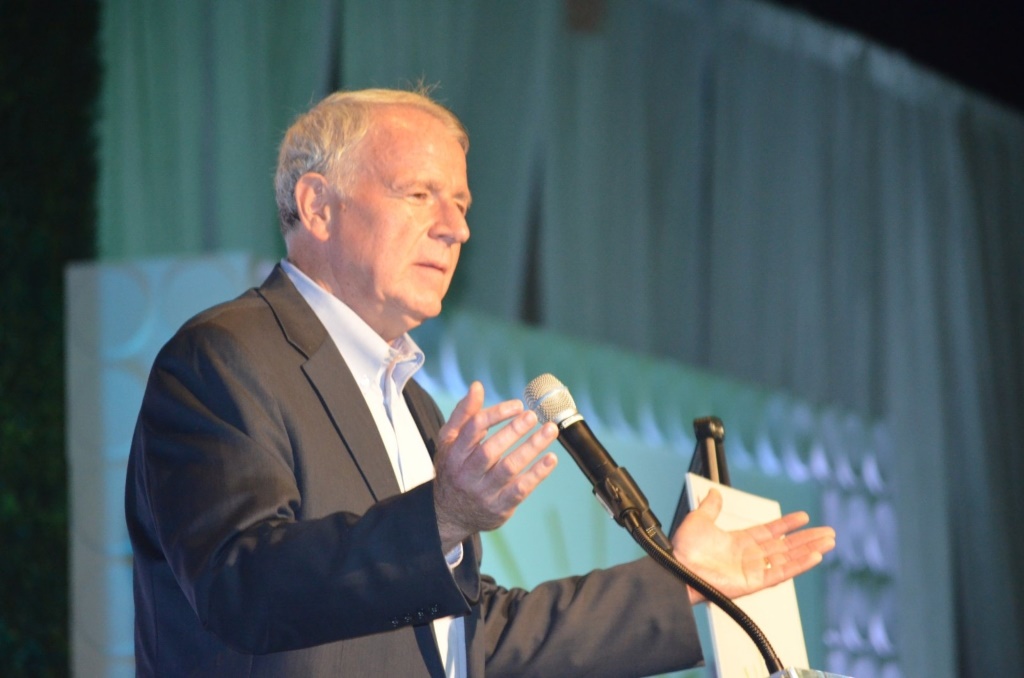Council Overrides Most of Mayor’s Vetoes
Bauman accuses Barrett of false promises, Stamper calls mayor "disingenuous."
With impressive speed and near unanimous support, the Common Council overrode all but one of the budget vetoes issued by Mayor Tom Barrett. Then a lengthy floor debate started after the council failed to sustain a previously approved 50 percent pay cut to the head of the city’s Board of Zoning Appeals. They eventually approved slashing the position’s pay to $35,000 annually, a 30 percent cut.
The council failed to sustain the 50 percent or $25,000 cut, but only after Alderman Michael Murphy changed his vote at the end of the roll call from supporting the override to sustaining the mayor’s veto. His late switch, coupled with an earlier one by Ald. Cavalier Johnson, caused the override to fail on a nine to six vote. Ten votes are required to override a mayoral veto. Council members Nik Kovac, Johnson, Jim Bohl, Mark Borkowski, Terry Witkowski and Murphy voted against the cut.
The cut, introduced on the council floor by Ald. Robert Bauman during the budget adoption process on November 10th, was originally approved by the council on a 10-5 vote with Johnson voting for it. The mayor, as I predicted in my budget approval column, vetoed the measure and promised to study the measure.
That study never happened, with Bauman characterizing it as “a classic example, which has happened before, of let’s promise the council something so they go away and forget about and then never revisit the subject.”
Bauman says the zoning appeals board has “run amok” — ignoring the city’s comprehensive plans, constituent concerns, aldermanic feedback and the opinions of the Department of City Development. He told the council “the chair maybe puts in 10 to 15 hours a month… On an hourly basis this is the highest paid position in city government.” The job is currently held by Catherine Doyle.
Bauman’s attack was backed by Ald. Russell W. Stamper, II, who took a shot at Barrett, who wasn’t in the chamber. “We are going to take the lead, you are going to stop lying to us,” Stamper said.
Bohl agreed with the pay characterization, but said “there’s absolutely a better way” to handle the salary change. He told the council he had a conversation yesterday with the mayor’s staff and that they promised the study would be completed by the end of January.
After the vote to preserve the cut had failed, Bauman instructed his colleagues to vote against an amendment from the mayor to restore the full funding. Bohl derided this approach, which would thereby leave the job entirely unfunded, as akin to saying “we lost the game, let’s up the blow up the stadium so we don’t have to play there again. That’s silliness. We’re above that.”
After voting to hold the mayor’s budget amendment, the council approved a quickly drafted amendment that was introduced by Bauman to reduce the pay of the position from $52,945 to $35,000, while still including fringe benefits.
That amendment passed on a 11-4 vote, with council members Johnson, Borkowski, Murphy and Witkowski voting in opposition.
The cut will not immediately go into effect. The Common Council will need to approve a change to the job classification for the position held by Doyle. Doyle’s appointed term expired in January. She holds the position until Barrett reappoints her or appoints a replacement.
Vetoes Overriden
Before the lengthy BOZA salary debate, Stamper was the only member of the council to speak on overriding a mayoral veto that altered three amendments that would add five recruits to a police recruiting class and contribute $165,000 to a Neighborhood Investment Beautification Program targeted at non-Downtown neighborhoods.
Stamper, who admitted “I have to do more research and homework before I present something,” found support among his colleagues to override the mayor’s veto. He implored them “we have to stick together. That’s the only way Milwaukee will change for the better. This council has to take the lead.”
The council overrode the mayor’s veto on a 10-5 vote, with council members Johnson, Bohl, Murphy, Borkowski and Witkowski in opposition.
The proposed disparity study would not have been impacted by the mayor’s now defeated veto.
Bauman found support from his colleagues to override the mayor’s objection to the contribution of $150,000 to the Housing Infrastructure Preservation Fund and $350,000 to the Strong Home Loans Program via increased borrowing. Bauman characterized the former as an “a significant job creator,” noting that a city report found that it has created 43,000 hours of work, with 28,000 of those being completed by previously unemployed or underemployed city residents. The latter he says is an extremely popular program that helps preserve declining or stagnant city neighborhoods.
The council agreed with Bauman, supporting the preservation fund contribution with a 14-1 vote with Witkowski in opposition. The loan program veto override was supported with a 13-2 vote with Johnson and Witkowski in opposition.
Barrett’s Response
In a statement, the mayor said “I am pleased the Council adopted over 95% of the budget I submitted. That’s good for City taxpayers and for the City’s fiscal stability.” He also said “I vetoed items that were financed with increased borrowing and funds from the salary and wage accounts. These actions should serve as an alert to City taxpayers that there are members of the Common Council who would rather satisfy their own agendas by adding to the debt and disrupting the delivery of City services than addressing the long term fiscal issues the City is facing.”
If you think stories like this are important, become a member of Urban Milwaukee and help support real independent journalism. Plus you get some cool added benefits, all detailed here.
Political Contributions Tracker
Displaying political contributions between people mentioned in this story. Learn more.
- September 17, 2019 - Cavalier Johnson received $200 from Terry Witkowski
- December 31, 2018 - Tom Barrett received $400 from Catherine Doyle
- December 30, 2017 - Tom Barrett received $400 from Catherine Doyle
- June 30, 2017 - Tom Barrett received $400 from Catherine Doyle
- March 28, 2016 - Michael Murphy received $100 from Terry Witkowski
- February 20, 2016 - Cavalier Johnson received $250 from Robert Bauman
- December 21, 2015 - Tom Barrett received $100 from Catherine Doyle
- November 19, 2015 - Robert Bauman received $50 from Terry Witkowski
- October 8, 2015 - Cavalier Johnson received $50 from Terry Witkowski
- May 7, 2015 - Nik Kovac received $10 from Cavalier Johnson
Eyes on Milwaukee
-
Church, Cupid Partner On Affordable Housing
 Dec 4th, 2023 by Jeramey Jannene
Dec 4th, 2023 by Jeramey Jannene
-
Downtown Building Sells For Nearly Twice Its Assessed Value
 Nov 12th, 2023 by Jeramey Jannene
Nov 12th, 2023 by Jeramey Jannene
-
Immigration Office Moving To 310W Building
 Oct 25th, 2023 by Jeramey Jannene
Oct 25th, 2023 by Jeramey Jannene






















